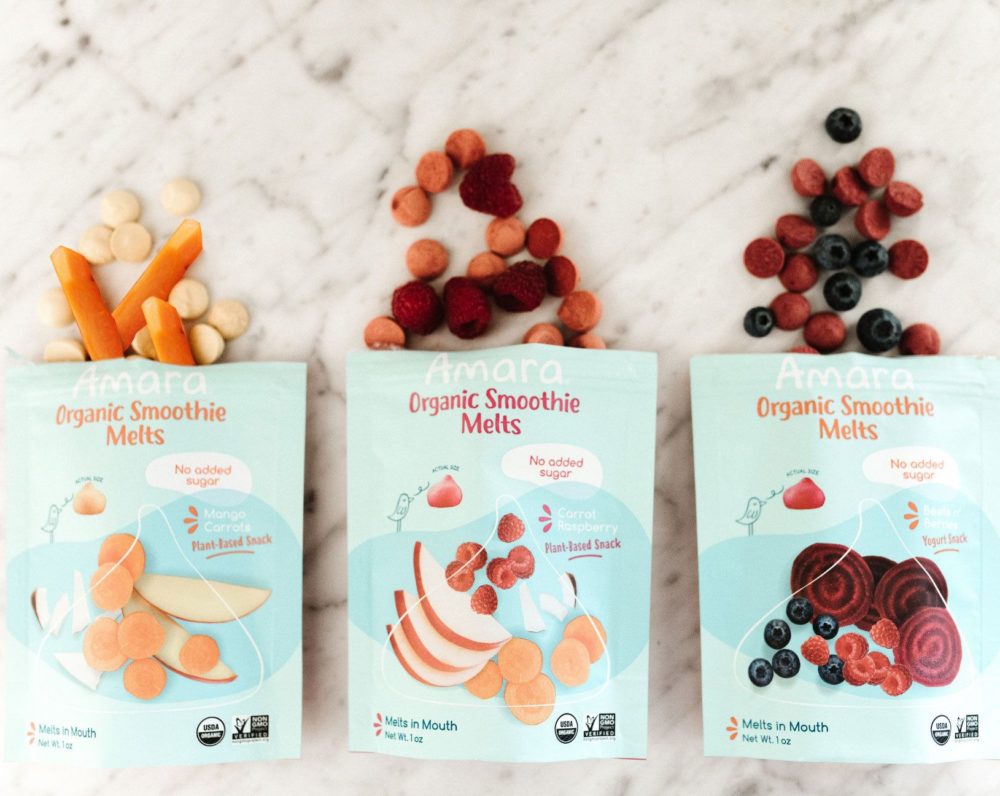US foodtech startup Amara has raised $12 million in Series A funding to grow its brand of plant-based baby food products.
The round was led by Canada’s Eat Well Group with participation from previous investors including the founder of nutritional supplement company LiquidIV.
The Series A funding comes 18 months after Amara’s seed raise, which the company took on in order to keep up with sales demand after going from 100 to 1,000 stores in 2020 – and at one point having $200,000 in backorders to keep pace with, it said in a statement.
CEO Jessica Sturznegger founded San Francisco-based Amara in 2017 with chef Vicki Johnson. The company makes plant-based baby food products that come in powdered form and are therefore shelf-stable and can be mixed with water or even breastmilk.
Amara started selling at Whole Foods stores in Northern California in 2017. Today, its products are available across the US at stores like Costco as well as online through Amazon and the company’s own website.
These products are made using what Amara says is “a proprietary technology that locks in the taste, texture, and nutrients of fresh baby foods” without adding the usual sugars and preservatives typically found in such items. While the company is somewhat tight-lipped on the detail, its food preservation process works by applying pressure to fruits and vegetables, removing the water from them and grinding the remains into powder. Sturznegger emphasizes that the process doesn’t use the high levels of heat that many baby food brands rely on.
Because the products are all shelf-stable, they can be sold at a lower price point than other premium organic baby food products. Sturznegger says that Amara’s products can be “as low as” $1.80 per meal. “It has to be at a price point that’s accessible for every family,” she says. “It’s through our technology that we’re able to do that.”
She adds that her company decided to target the baby food market because the first seven years of humans’ lives are “critical” in terms of defining gut microbiome and neural pathways in the brain, which can influence overall health outcomes later in life.
“When [we looked at] the category, it was all really highly processed [and] really high in sugars,” she says. “And that’s when we decided there has to be a way to make something that fits into your daily life but can also deliver on nutrient density.”
Aside from ongoing concerns about heavy metals in commercial baby food, much attention has been placed on its sugar content in recent years. One study from Action on Sugar found more than one-third of baby snacks would receive a red (high) alert for excess sugars.
To bypass this, Amara sources each ingredient individually, using a team of food scientists, nutritionists, and an in-house chef to analyze nutrient density and find combinations that pair well together.
Amara said it will use some of the new funding to grow its team, as well as expand its number of products and focus on more advertising and brand awareness.





